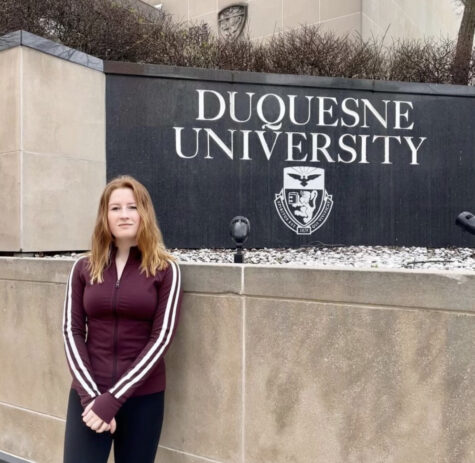How Current Admission standards are negatively affecting today’s youth
January 11, 2023
In the year 1997, 67% of public school students attended a college or university after graduation. In 2021, 74% of students attended, and this was during a pandemic when many students opted for gap years.
Education has always been a main priority in our society, and an increase in college attendance is something many rejoice at, but when demand is large, and opportunity is small, competition often takes the reins.
Most think of competition in relation to sports and board games, but competition can come in many forms. Education, for example, is often forgotten. With an increase in college interest, some universities have started to raise their acceptance standards beyond simply the “A” student.
For example, Harvard University describes its ideal student to possess leadership experience, community involvement, meaningful extracurriculars, and maintain exceptional academic performance.
With so many boxes to check, it’s hard to imagine how today’s youth manages to find time for their interests. How early does this mindset take hold, and does it positively or negatively affect today’s youth?
Hershey High School sophomore Mia Caldonetti began thinking about college when she was eight years old. But she only recently started thinking about how to pay for it.
Seeing as society tends to introduce college much later, Caldonetti’s response was intriguing. It later became clear that finance played a large part in her early teachings.
“Education was always top priority, college was a way out almost.” Caldonetti went on to express the struggles of living in a low-income household as a child and spoke on how that made her more determined to attend college.
For Caldonetti, excellent grades, community service, and extracurriculars were necessary for her future success.
Caldonetti also spoke on the pressure within her own school. “With all the decorations of colleges hanging in the student council office, there’s a lot of pressure to at least consider college.”
In just her freshman year, Caldonetti has been on four college visits and has participated in community service, sports, and several well-respected clubs.

University is expensive, and for some students, they’re not “buying” the college, the college is “buying” them. This can create additional stress for students, causing them to overwork themselves in order to fit college admission and aid standards.
Hershey High School junior Sophie Tunks also plans to take advantage of all opportunities. As the daughter of two Duke alumni, Sophie plans to use her legacy application to aid her admissions process.
Along with her legacy, Tunks has also participated in many extracurriculars. “I always made sure my grades were good,” said Tunks, “and that I participated in sports and community service.”

With so many students going the extra mile for admissions, it suggests that outside forces have dealt a hand in today’s pressure and expectations.
Georgetown-bound student Cali Oyerly can speak on the rising pressure in relation to college admissions. “The atmosphere today makes you feel the need to be the best.” This seemed to be true for many students.
Similar to others, Oyerly has also participated in extracurriculars. “I’ve done honors society, little clubs, and community service, and I definitely think that looks good for college admissions.”
Oyerly also spoke of the unrest college admission can cause in a student’s household. “Arguments, I would say with family,” seemed to be caused by admission discussion.

With the constant pressure that seems to surround admissions today, it makes one wonder if the pressure was always this high. For a class of 1997 student, Tanyanelle Wilhelm, this was false.
As a child, Wilhelm had a difficult life in which her single mother had to work several jobs to support the family, but college seemed to be the least of her problems.
“I played several sports, and was involved in a lot of clubs, but I wasn’t looking to use these for college.” For Wilhelm, college was always important, but it never came to affect her life outside of school.
She also spoke about the overall atmosphere of her class while graduating. Unlike student responses from nowadays, Wilhelm found college to be a simple topic of discussion.
“I felt like we were all in it together, we were all very supportive,” was her response when asked about her experience with other students. She went on to speak of the minimal stress and excitement college admissions had brought the class of 1997.
After interviewing both recent and past students, It’s become apparent that both college competition and pressure have risen, and in most cases, it’s negatively affected students.
With heightened admission standards, students have been forced to sacrifice their own interests and needs to fit both society, and college admission standards.
Admissions have also caused unrest in households, and have put financially challenged students in difficult situations in which they must work much harder than the average student.
To conclude, admission-related pressure and competition is rising and has negatively affected today’s youth.








